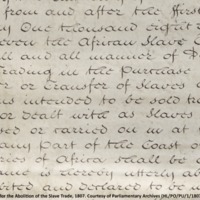
BOUND
Curated by Predrag Pajdic, BOUND was an exhibition of works by international contemporary artists representing personal perspectives on the physical and psychological impact of slavery on humanity, in historical and modern contexts. BOUND incorporated archival material, conceptual work, photography, video, live art performance, interventions and installations. It was a partnership project between the Open Eye Gallery, FACT (Foundation for Art and Creative Technology) and Tate Liverpool. The exhibition opened at Open Eye Gallery and then ran at various venues across Liverpool. Associated events included open table discussions, talks and film screenings.
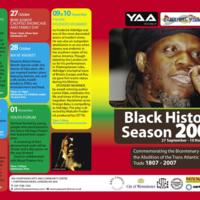
Black History Season 2007: Commemorating the Bicentenary of the Abolition of the Trans Atlantic Slave Trade 1807-2007
A programme of events and activities for Black History Month 2007 from Yaa Asantewaa Arts and Community Centre had a particular focus on the bicentenary. The programme included theatre, youth projects and family days. Calypso Fuh So performed special Calypsos to mark the bicentenary, and YAA/Carnival Village organised a commemorative walk to remember ancestors who died in slavery, and the Black presence in Britain. Ritual Theatre Arts created a film celebrating thirty years of African dance in Britain and International Word Power featured performances of poetry, storytelling and song.
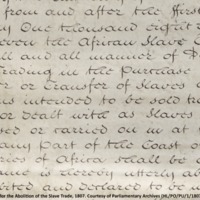
1807: Blake, Slavery and the Radical Mind
A special display at Tate Britain to mark the bicentenary focused on William Blake and the circle of radical writers and artists associated with the publisher Joseph Johnson in the 1790s and 1800s. Blake's poetry and art protested against mental, physical and economic enslavement and inspired generations of artists, writers and political dissenters. The display was accompanied by a variety of events, including talks, performances and music for adults, families and young people and schools.
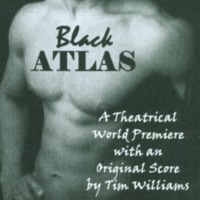
Black Atlas
A performance by the London Shakespeare Workout based on George MacDonald Fraser's novel 'Black Ajax'. The play, set in Regency England, tells the historical tale of two enslaved men through dialogue, song and verse. One slave is from America, another is from Africa. The former, Tom Molineaux, becomes the first Black Prize Fighter in Britain. Black Atlas featured an original score by Tim Williams. The play opened in Cambridge and toured to 40 different venues around the UK.
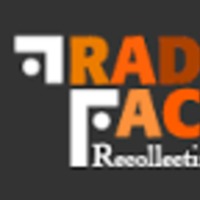
Trading Faces: Recollecting Slavery
Trading Faces: Recollecting Slavery was a consortium project developed by Future Histories (a non-profit organisation set up to maintain archives of African, Caribbean and Asian performing arts in the UK), Talawa Theatre Company (a leading Black-led touring theatre company) and V&A Theatre Collections. Trading Faces made use of archive documents, video and audio material to explore the legacy of the transatlantic slave trade in British performing arts and society. By promoting the use of primary resources, the online exhibition aimed to stimulate creativity, critical thinking, individual responsibility and participation. Highlights of the exhibition included a performance timeline featuring recently archived material from the past 200 years, narratives of slavery from both the past and present and a series of virtual rooms, which explored ritual, religion, carnival and masquerade amongst other aesthetic themes. On the Open Doors section of the site, users contributed material and ideas to promote a critical debate on the subject. As part of the project, the 'Retrace: Identity and Heritage' educational resource pack from Talawa Theatre Company is about the exchange of culture between the UK and other countries linked by the transatlantic slave trade and colonialism, and the impact of these relationships on the performing arts.
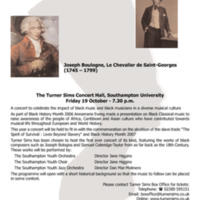
Spirit of Survival: Lives Beyond Slavery
A collaborative project to explore the links between Southampton and the slave trade led by Southampton City Council, the University of Southampton and The Confederation of African Caribbean Communities. One highlight of the programme was a concert at the Turner Sims Concert Hall at the University of Southampton to celebrate the impact of black music and black musicians. The concert, part of Black History Month 2007, featured the works of black composers such as Joseph Bologna and Samuel Coleridge-Taylor, performed by the Southampton Youth Orchestra, Southampton Youth Choir and the Southampton Youth Jazz Orchestra.
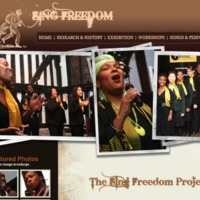
Sing Freedom
The Sing Freedom project was based on the Spirituals sung by African peoples as a response to being enslaved. The generally Christian songs often contained instructions about escape and resistance. The project was a collaboration between Kainé Management Group, Leicester African Caribbean Arts Forum, Leicester City Council Arts & Museum Service and Library Service. It included research into the songs, a touring exhibition, and performances. A series of song writing workshops for young people in partnership with BBC Radio Leicester aimed to give each participant an understanding of the effects of slavery and perceptions they have on present day freedom. At Leicester Guildhall Kainé Gospel Choir and friends came together for an evening celebrating the Spirituals, where songs such as The Gospel Train, Wade in the Water and Swing Low Sweet Chariot were sung.
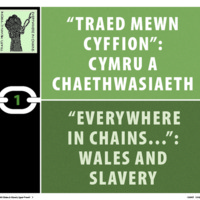
Everywhere in Chains: Wales and Slavery
Everywhere in Chains was an umbrella project created for the bicentenary commemorations in 2007, by a collaboration between Amgueddfa Cymru - National Museum Wales, the National Library of Wales, University of Wales, Bangor and CyMAL: Museum Archives and Libraries Wales (part of the Welsh Assembly Government). An exhibition explored Welsh involvement in slavery, especially focusing on the transatlantic slave trade and its abolition, the Black presence in Wales, and legacies of slavery. This was shown at the National Waterfront Museum in Swansea from May to November 2007 before touring to Wrexham County Borough Museum. The touring version of the exhibition was funded by the Welsh Assembly Government. The exhibition in Wrexham included discussion of the painting 'A Negro Coachboy', thought to commemorate a black servant of John Meller, owner of the Erddig estate in the 18th century.
Alongside the exhibition, the Everywhere in Chains programme also included lectures, formal learning activities and performances. An educational pack was produced by CyMAL and distributed to every school in Wales in 2009-2010. A community project created a forum in which participants from many cultural backgrounds could voice their ideas about enslavement. The Everywhere in Chains Community Heritage Toolkit captured the learning from this project. The toolkit, launched in 2009, was produced to help individuals, groups and organisations to work with culture and heritage providers to undertake projects focused on the role of Wales in the transatlantic slave trade and issues of modern slavery.
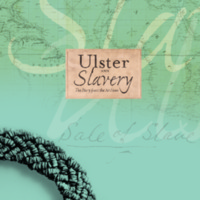
Hidden Connections: Ulster and Slavery 1807-2007
The Hidden Connections exhibition was a result of partnership between the Public Record Office of Northern Ireland (PRONI) and the Linen Hall Library in Belfast. The exhibition explored Ulster's links with slavery after 1807 via people, events and places, and looked at both the pro and anti-slavery debates in Northern Ireland. It drew on documents from PRONI’s archives, artefacts from the Ulster Museum and contemporary books and pamphlets from the Linen Hall Library and elsewhere. After its launch at Linen Hall Library, the exhibition toured Northern Ireland, travelling to Down Museum, the Harbour Museum in Derry, Lisburn City Library and the Ulster American Folk Park.
The wider Hidden Connections programme featured workshops exploring archival sources, performances and lectures by leading scholars. There was a panel discussion on ‘Slavery Now’, a walking tour of Belfast sites associated with the slavery issue, and a boat trip on the Lagan focusing on the port’s links with slave colonies. Gerry McLaughlin’s ‘Blood sugar’ is a drama documentary devoted to the literature of slavery, music and song. 'Freedom and Liberty' was the theme of the UK-wide Archives Awareness Event. PRONI organised special events and produced a catalogue, 'Ulster and Slavery', listing the references to slavery to be found in the archive.
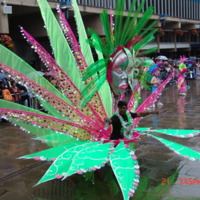
A Guide to Events in Derbyshire
A bicentenary brochure detailing some of the arts and non-arts activities held in Derby throughout 2007 to mark the bicentenary involving schools, community groups and other organisations. These included performances from the University of Derby's Student's Union, a debate at Derby City Council House, and a presentation of archive material from BBC Radio Derby's African Caribbean Show. The Freedom Showcase featured nine performers and writers from Leicester, Nottingham and Derby sharing their personal visions of 'Freedom' through a variety of spoken styles, from poetry, to rap and monologues. The costumes on display at Derby's Caribbean Carnival in July 2007 depicted positive images of the enslaved surviving and resisting slavery. Derby West Indian Community Association led a performance of dance and drama to depict slavery and its impact on young people, and a school project around the theme of slavery. Creative Thought was part of a Renaissance East Midlands funded Community Learning initiative. Working with an artist, participants explored the concept of slavery and its links to Derby's industrial heritage using The Silk Mill as inspiration. Tactile objects were created to share understanding about links with slavery.
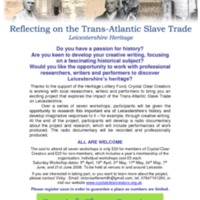
Reflecting on the Trans-Atlantic Slave Trade
Crystal Clear Creators is a not-for-profit arts organisation based in the East Midlands. Reflecting on the Trans-Atlantic Slave Trade enabled a series of community creative writing workshops in Leicester exploring themes of the slave trade. The workshops involved talks from experts in the field, a tour of relevant places of interest, and research at the Leicester, Leicestershire and Rutland Records Office. Those involved then wrote, produced, recorded and broadcast radio dramas on the subject, and held a day of performances for the public. The project was developed with Leicester's Arts forum LACAF and Mainstream Partnership. A follow-on project in 2009-10, Reflections: The Trans-Atlantic Slave-Trade, was a course for young people about the transatlantic slave trade, which included researching and writing about the subject. The project culminated in a day of performances and an exhibition at New Walk Museum.
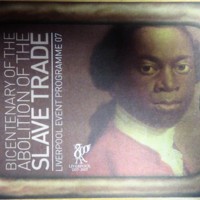
Liverpool Event Programme 07
Liverpool hosted a city-wide programme of activities and projects to commemorate the bicentenary, as part of events to mark the city's 800th birthday. The events aimed to celebrate the African Diaspora and support works by artists of African descent. They included: LEAP, an annual contemporary dance festival featuring African dance companies; a performance of Mighty Diamonds - Reggae Legends at the Philharmonic Hall; the Roscoe Lectures; the Brouhaha International Carnival, celebrating resistance, rebellion and abolition; the Africa Oyé Music Festival at Sefton Park; the Bound exhibition at Open Eye Gallery, showing works representing personal perspectives on the physical and psychological impact of slavery on humanity; and many other lectures and debates. There was also a slavery trail around the city.
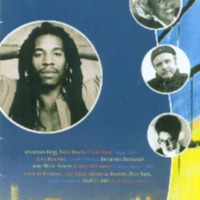
WOW2007
In 2007 Liverpool's annual Writing on the Wall arts festival explored the legacy of slavery through words, music, lyrics, song, dance and discussion. Authors, campaigners and social commentators explored the themes of the bicentenary and Liverpool's 800th birthday. The festival aimed to celebrate diversity and promote inter-cultural tolerance. Speakers included one of the nine Britons detained in Guantanamo, Cuba. Among the performers was dub poet Benjamin Zephaniah joined by Jean 'Binta' Breeze and Levi Tafari, and featuring the MDI African Dancers for an 'extravaganza of rhythm and rhyme' at the Royal Philharmonic Hall. Liverpool Young Writers was launched by Writing on the Wall in 2007. Members have recently performed at Slavery Remembrance Day and the International Slavery Museum.
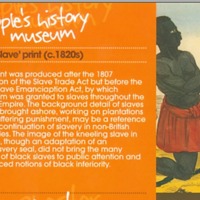
Revealing Histories: Remembering Slavery (People's History Museum)
Events at the People's History Museum in Manchester included a Revealing Histories trail, which highlighted museum objects with links to slavery, such as 'The Slave' print from the 1820s. A living history performance, 'How do you plead?', featured a representation of the Chartist leader William Cuffay, whose campaign for the right to vote saw him transported to Tasmania for treason.
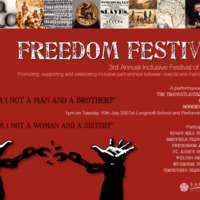
Freedom Festival 2007
East Riding's Freedom Festival in 2007 commemorated the abolition of the slave trade and explored issues of modern day slavery through a multi-sensory performance featuring pupils from mainstream and special schools in the East Riding area. The play was in three parts - the transatlantic slave trade, emancipation and modern day slavery. Resources and activities from the project were then made available to schools interested in developing an inclusive arts project.
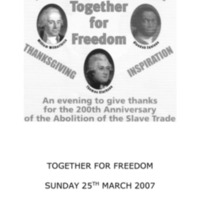
Wilberforce 2007 at Holy Trinity Church
Hull's parish church of Holy Trinity is where William Wilberforce was baptised in 1759. The Church held a number of performances and events throughout 2007. The Together for Freedom commemorative service took place on 25 March 2007, led by the Archbishop of York and featuring the Redemption Gospel Choir from Hull and Middlesbrough. The Freedom Flower Festival took place in June and the Songs of Freedom Music Festival in September, featuring performances by leading gospel performers and local schoolchildren. The London Community Gospel Choir gave a powerful concert, which highlighted the important role of music in the lives of slaves living on plantations. In August, the Freetown Society of Hull hosted a performance of the Milton Margai School for the Blind Choir from Freetown, Sierra Leone. A Panos photographic exhibition at the Church, Slave Britain, revealed the realities of contemporary human trafficking.
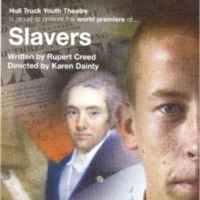
Slavers
Hull Truck Theatre supported Wilberforce 2007 with two specially commissioned productions, Slavers and Sold, and a playwright festival. For one week in August 2007, Hull Truck Youth Theatre presented Slavers, set in 2007, which told the story of abolition through the eyes of young people in Hull. Written by Rupert Creed and directed by Karen Dainty, the play followed a group of school leavers and their potentially prosperous business-start up, trading in human cargo. When some started questioning the morality behind the business, the audience was transported back to the debates of Wilberforce and his allies two hundred years previously. Another play, ‘Sold’, in conjunction with Liverpool Hope University, sought to raise awareness about the victims of human trafficking and sexual exploitation today.
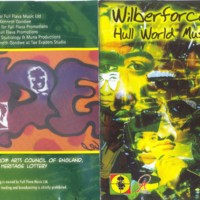
Wilberforce Connexion
In 2009, Full-Flava Entertainment compiled a world music CD and DVD celebrating the cultural diversity of Kingston Upon Hull through a collaboration of a wide selection of diverse musicians, bands and groups based in Hull. The Wilberforce Connexion included artists that have migrated to Hull, or who represented their ancestral country of origin: Angola, Congo, India, Kurdistan, Malawi, Nigeria, Portugal, Russia, South Africa, Tanzania and United Kingdom.
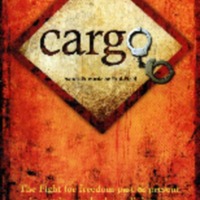
Cargo
Written by composer Paul Field, Cargo premiered in Hull City Hall in March 2007, sponsored by Hull City Council. Cargo featured contemporary songs, narration, dance and images that told the story of the struggles of slaves, the historical work of William Wilberforce and the abolition movement, through to the contemporary struggles against slavery today. Performers included the singer Coco Mbassi, saxophone player Mike Haughton and Springs Dance Company. The narrators and choir were local people, including members of City of Hull Youth Choir, Redemption Gospel Choir and Hot Gospel in Hull. Cargo was also performed in London, Plymouth, Bristol and Liverpool. Smaller events were put on by church and community groups around the UK, assisted by the script, score and backing track of the music being made available on CD-Rom.
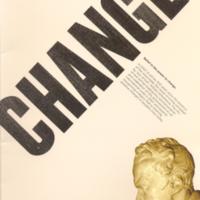
Wilberforce 2007
Wilberforce 2007 was a year-long programme of events from Hull City Council, commemorating the bicentenary and celebrating the city's diverse communities. The programme, named after 'son of Hull' William Wilberforce MP, was based around the themes of Pride, Freedom, Belief and Change. In partnership with Anti-Slavery International, Hull promoted the Fight for Freedom Petition against modern day slavery. The Wilberforce Lecture Trust held five specially commissioned lectures. The Wilberforce Weekender in July 2007 was a weekend of public events, including the Wilberforce Clipper Challenge Cup, Sankofa Sunsplash (celebrating African and Caribbean culture, food and music), Zapcat Racing, and the annual Jazz Festival. Throughout the year there were concerts and specially commissioned pieces from the Hull Choral Union, Hull Philharmonic, Hull Sinfonietta and the East Yorkshire Motor Services Brass Band. Other initiatives raised awareness of Fair Trade, and there was a variety of educational programmes and events. Funding was also made available for smaller community projects.